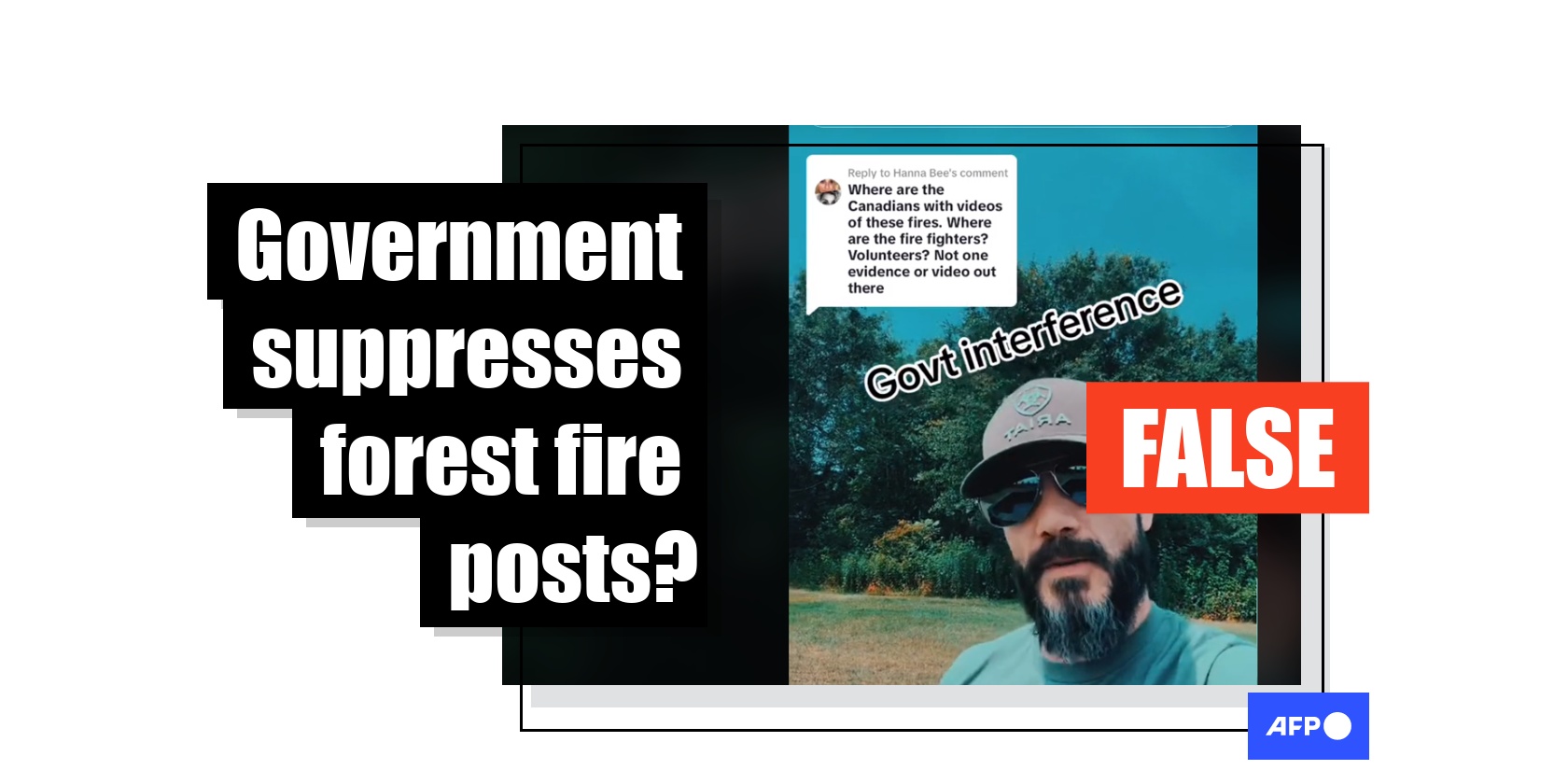
Canada did not block online content about wildfires
- This article is more than two years old.
- Published on June 27, 2023 at 21:41
- 4 min read
- By Gwen Roley, AFP Canada
"This is real-life censorship at work where they're actually silencing the voices of their people and not letting them put anything out that's going to actually show the truth about what's happening," says the speaker in a June 10, 2023 TikTok which received over 132,000 views.
In the video, the man claims there is a lack of posts from users in Canada about the ongoing wildfires due to content being blocked following the recent passage of Bill C-11, or the Online Streaming Act (archived here).
Similar claims of censorship of wildfire content were shared on Facebook, Twitter and TikTok.
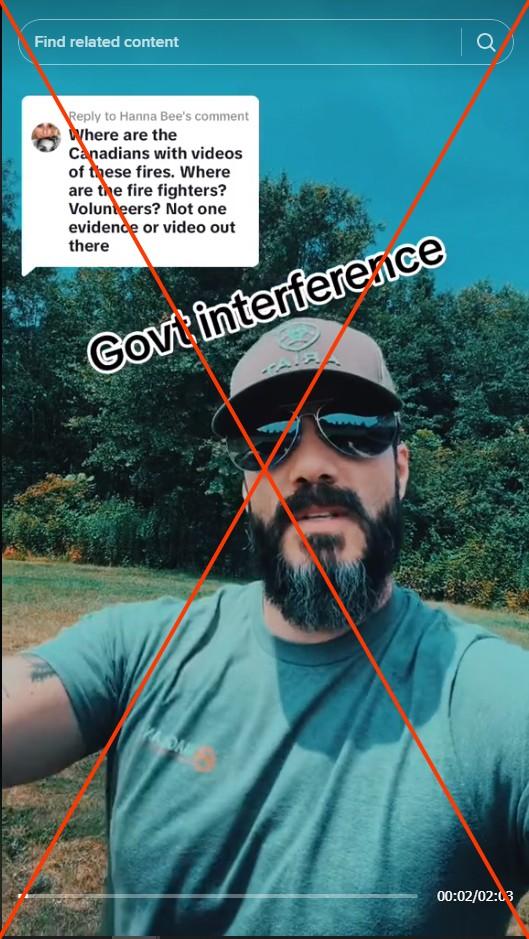
But Bill C-11, which amends the Canadian Broadcasting Act, has not yet taken effect.
Laura Scaffidi, a spokeswoman for the Minister of Canadian Heritage who sponsored Bill C-11, said the law received royal assent on April 27, but the Canadian Radio-television and Telecommunications Commission (CRTC) must still define directives for how to apply the law.
"C-11 hasn't been implemented yet and won't begin until the government issues a Policy Direction to the CRTC, and the CRTC develops regulations," Scaffidi said.
Posts about wildfires on public Facebook pages managed from Canada have received hundreds of thousands of interactions since the start of May according to CrowdTangle, a social media monitoring tool.
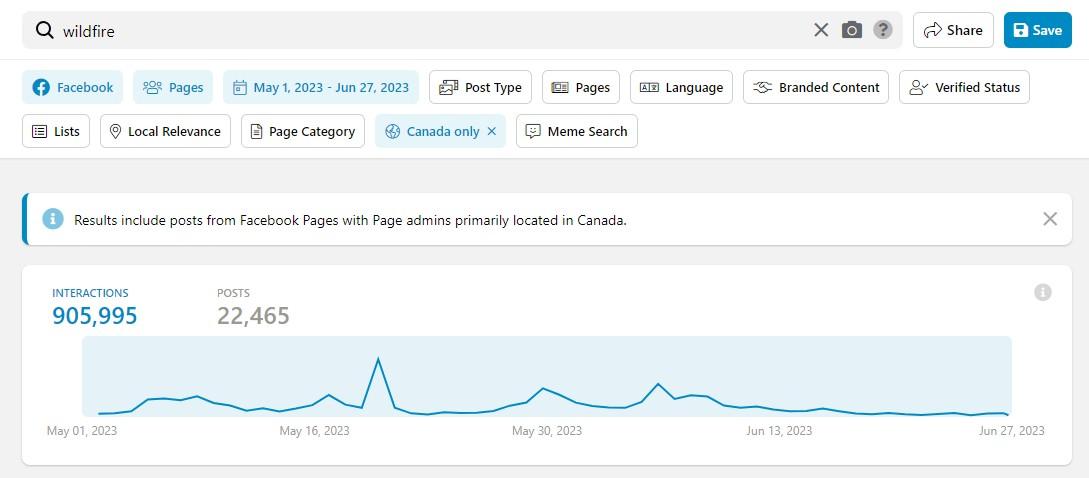
Confusion around Bill C-11
Since Bill C-11 was introduced it has been the subject of public scrutiny and misinformation, as Canadians have raised concerns that content regulation will lead to censorship.
Under Canada's Broadcasting Act, the CRTC mandates a certain amount of content on television and radio must be Canadian. The amendments brought in by C-11 aim to implement the same type of regulations on streaming services, according to Vass Bednar, a professor of public policy at McMaster University.
Both Scaffidi and Bednar said that the bill should not affect user-generated content on social media -- it is targeted at streaming platforms like Netflix and Spotify.
However, the open language of the law was criticized for possibly giving the CRTC more power to regulate platforms beyond promoting Canadian content.
While the CRTC has said the bill will only apply to streaming services, and not to social media users or content creators including YouTubers or podcasters, Bednar said that there could be more clarity in communicating how the law will actually affect the user experience on these platforms.
"The CRTC has been cautious about committing to what it's going to look like," she said. "Because they've been cautious about how that's actually going to work, maybe people fill in those blanks."
For example, AFP previously debunked a claim the bill was used to block an American gun-selling website in Canada.
Others speculated that Alberta Premier Danielle Smith was censored by Bill C-11 when her Facebook page was temporarily blocked from posting, but this was reported to be a restriction on one of the page's administrators, not the page itself.
When Bill C-18 (archived here) -- a law aiming to make technology companies pay to host Canadian news -- received royal assent on June 22, Meta said it would respond by blocking news from being posted on its platforms. Some have falsely linked the removal of news for Canadian users on Facebook and Instagram to Bill C-11.
Wildfire misinformation
The intense Canadian forest fire season, which has resulted in tens of thousands of evacuations and millions of hectares burned, has also been met on social media with unsubstantiated conspiracy theories.
Since the early start of wildfire season in Alberta, AFP has debunked claims of arson or government agents intentionally starting the wildfires. Many of the posts have implied the fires are being started to artificially generate panic about climate change.
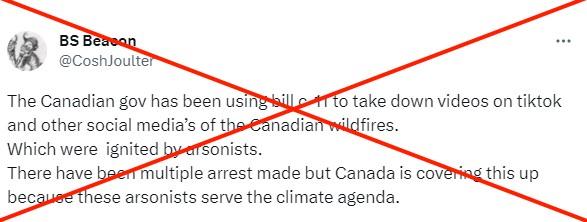
The video making false claims about Bill C-11 was made in response to a comment on a previous video saying the fires were being started to "create a climate emergency."
While investigations into the causes of the fires are ongoing, Canadian officials have repeatedly told AFP that the record-breaking wildfire season is a result of hot, dry, windy conditions brought on by climate change.
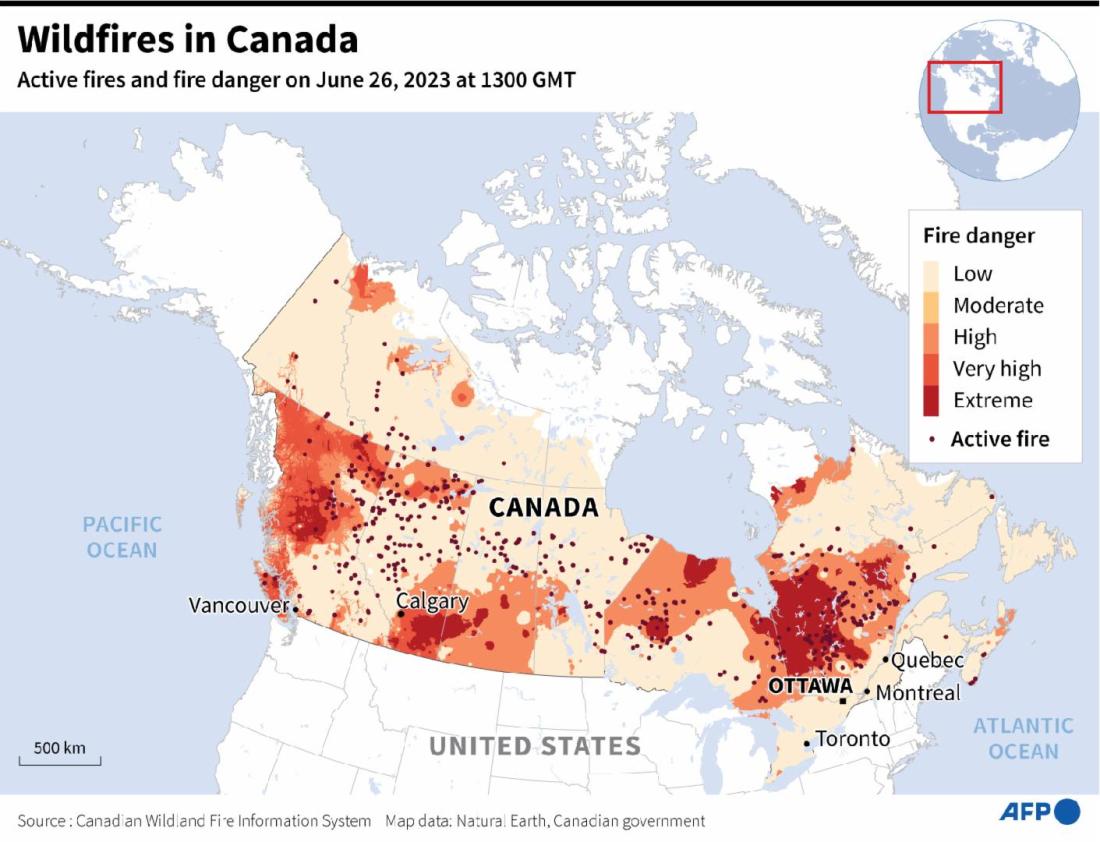
Read more of AFP's reporting on misinformation in Canada here.
Copyright © AFP 2017-2026. Any commercial use of this content requires a subscription. Click here to find out more.
Is there content that you would like AFP to fact-check? Get in touch.
Contact us
